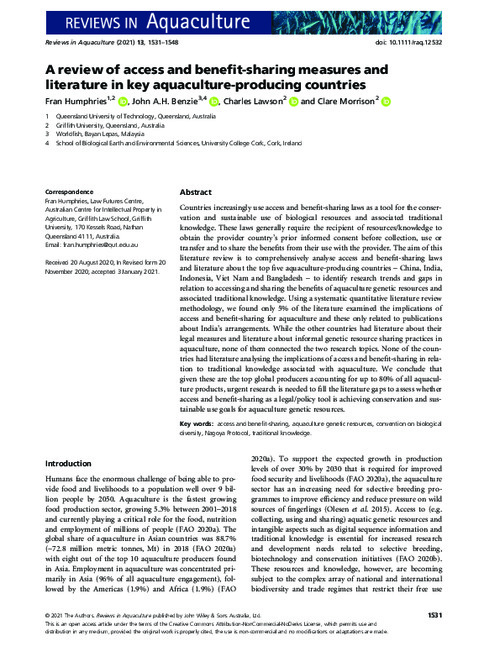A review of access and benefit-sharing measures and literature in key aquaculture-producing countries

Countries increasingly use access and benefit-sharing laws as a tool for the conservation and sustainable use of biological resources and associated traditional knowledge. These laws generally require the recipient of resources/knowledge to obtain the provider country’s prior informed consent before collection, use or transfer and to share the benefits from their use with the provider. The aim of this literature review is to comprehensively analyse access and benefit-sharing laws and literature about the top five aquaculture-producing countries – China, India, Indonesia, Viet Nam and Bangladesh – to identify research trends and gaps in relation to accessing and sharing the benefits of aquaculture genetic resources and associated traditional knowledge. Using a systematic quantitative literature review methodology, we found only 5% of the literature examined the implications of access and benefit-sharing for aquaculture and these only related to publications about India’s arrangements. While the other countries had literature about their legal measures and literature about informal genetic resource sharing practices in aquaculture, none of them connected the two research topics. None of the countries had literature analysing the implications of access and benefit-sharing in relation to traditional knowledge associated with aquaculture. We conclude that given these are the top global producers accounting for up to 80% of all aquaculture products, urgent research is needed to fill the literature gaps to assess whether access and benefit-sharing as a legal/policy tool is achieving conservation and sustainable use goals for aquaculture genetic resources.
Permalink
Date Available
Type
Publisher
Countries
ISSN
1753-5123,1753-5131
Copyright
CC-BY-NC-ND-4.0
Research Themes
Topics
Language